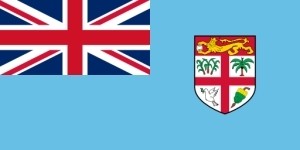Fiji urged to abandon outdated sedition laws
Judicial partners should encourage the Fiji prosecution office to pull back from sedition charges against  the country’s leading newspaper, says PFF, the Pacific Freedom Forum.
the country’s leading newspaper, says PFF, the Pacific Freedom Forum.
“Fiji’s judiciary is again out of step with the rest of the region”, says PFF Chair Monica Miller, speaking from American Samoa. “Colleagues from around the region need to extend what they’ve learn from many millions in aid spent on improving judicial services.”
Incitement
Director of Public Prosecutions, Christopher Pryde, was this week given 21 days leave by the Fiji High Court to consider whether or not existing charges of “inciting communal antagonism” should be upgraded to sedition.
The charges stem from an opinion piece in an indigenous language newspaper, Nai Lalakai, published criticising the role of Muslims in the Fiji government.
In iTaukei, the column includes the passage which raised incitement charges: “Muslims are not the indigenous of this country. These are people that have invaded other nations, for example, Bangladesh in India, where they killed, raped and abused their women and children. Today they have gone to the extent of having a part in the running of the country.”
Unfair
Column author Josaia Waqabaca faces incitement charges along with Nai Lalakaieditor Anare Ravula, The Fiji Times Editor-in-Chief Fred Wesley, along with Fiji Times Ltd publisher and general manager Hank Arts.
Miller says the opinion piece has already been attacked in public as deeply unfair to Fiji Muslims. “And that’s where unfair opinion should be challenged – in the court of public opinion – not the actual courts themselves,” says Miller.
Colonial
PFF is repeating earlier calls to drop the incitement charges, and abandon any move towards sedition charges. “Outdated seditious libel laws inherited by Fiji from the United Kingdom should be left back in the colonial era where they belong”, PFF Chair Monica Miller says.
The United Kingdom abolished the offence of seditious libel in 2009.
Press
Miller describes leave given by the court as sending the completely wrong message about the role of the press. “Hopefully, other courts around the region do not see this as a precedent for dealing with the Fourth Estate.”
The case returns to court on 23 March.
